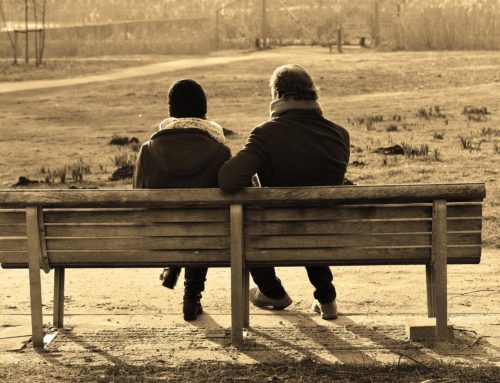We’ve all heard people throw around the term “social anxiety,” but for people who have it, life is full of obstacles that most of us don’t have to navigate. All forms of social anxiety are frustrating, but severe cases can cause life-damaging problems. Social anxiety is part of the anxiety family of psychological disorders. Anxiety disorders are the most common of all psychological disorders, affecting about 40 million adults in the USA[1]. When social anxiety becomes so debilitating that a person can no longer interact with others without severe distress, social anxiety often is referred to as social phobia. Social anxiety doesn’t go away on its own, but it doesn’t always need extensive therapy to get relief.
Social anxiety is typified by:
- High levels of fear of scrutiny from others
- Scrutiny from others is a personal reflection affecting self-worth
- Fear of humiliation and embarrassment in social settings
- Fear is of such intensity as to create panic or panic attacks
- A dread of events or situations that provoke the anxiety is so high as to interfere with daily life
These situations are a few of the many sources of fear for people with social phobia:
- Interacting with strangers
- Parties, or any kind of gathering
- Speaking or talking in front of others
- Waiting in line
- Eating in front of others
- Using public restrooms
- Walking in front of people
- Walking into a room where other people are
A Few Coping Strategies to Manage Social Phobia
- Challenge our thinking. People with social phobia tend to have multiple sets of cognitive distortions about being around others or other social situations. Cognitive distortions are patterns of thought that are reflexive to us yet predicated on erroneous beliefs. First, we have to understand that although our fears and anxiety are real, they’re not based in reality. Cognitive distortions chain together to create catastrophic scenes in our minds that are completely based on incorrect thinking.How’s our thinking incorrect? Consider our fear of scrutiny from others. People do tend to give a flicker of attention to people who enter a room or are waiting in line with us, or in any way engage with them. However, their attention isn’t personal, it isn’t a statement about our worth or how well we’re performing any task. It’s not even properly able to be called scrutiny.
- Avoid avoidance. Avoiding social situations puts off anxiety, but it makes it worse at the same time. The more we interact in social settings, we’re more able to challenge our thinking as noted above. We’re able to see how interacting—how even being in public alone—doesn’t lead to disaster, no matter what we do.The body is exquisitely tuned to fear and anxiety. The more often we’re exposed to what scares us without harm befalling us, the fewer times our bodies will trip our fight or flight reflex. The more relaxed we become in social settings, the less likely we are to avoid them. Exposing ourselves to what we fear without harm coming to us is a form of conditioning.
- Get a grip on your imagination. People with social anxiety create an image of themselves based on their own imagined flaws, of how they think they appear to others. In reality, everyone who sees us has their own image of us, and it’s usually very fleeting.Make a list of how we see ourselves when we’re anxious—now, write a list of things we know to be true about ourselves. By contrasting what’s true against what’s the product of fear, we learn how to dispute our fears.
- Re-center Understand and act on the fact that no one is the center of the world. Those of us who suffer from social phobia tend to think of the whole world—or at least everyone who can see us—as fixated on us, and even worse, negatively fixated. We think “Everyone is laughing at me,” or, “Everyone thinks I’m stupid,” when in reality, no one is paying that much attention to us, even when we’re giving a speech in front of dozens or hundreds of people. We must stop acting and reacting as if everyone is concerned.
- Shift our focus. The more we focus on ourselves, the worse we feel. The worse we feel, the more we focus on ourselves. Social phobia doesn’t play by rational rules. Distraction is usually the best policy.
Finally, be kind to yourself. As with all anxiety treatments, progress is made in small increments. Keeping a journal of events and outcomes can help boost confidence with every step forward!
Damaris Aragon, ARNP, BC provides a full spectrum of mental health care to people in Spokane, Washington and the surrounding areas. She focuses on providing compassionate personalized care that adheres to current evidence-based standards. Reach out to Damaris through her contact page or calling 509-342-6592.
[1] https://www.nami.org/learn-more/mental-health-conditions/anxiety-disorders






